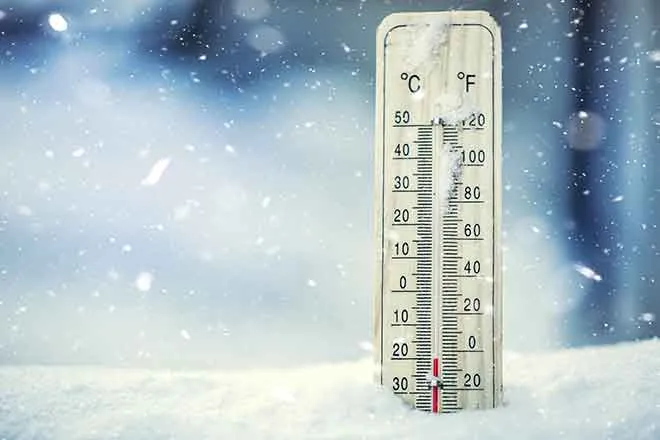
Daily Audio Newscast Afternoon Update - April 1, 2025
© INDU BACHKHETI - iStock-1336427297
News from around the nation.
Wisconsin and Florida voters head to polls in test of Trump's popularity; NY groups want more done to support Gaza amid Israeli attacks; Nonprofit races to save science, environmental-justice website data; For SD, wind energy means jobs, not just spinning turbines.
Transcript
The Public News Service Tuesday afternoon update.
I'm Mike Clifford.
Today's election to fill a Supreme Court seat in Wisconsin has emerged as the country's first major political battle since President Trump returned to the White House.
It offers both an early test of the president's popularity in a state he narrowly flipped last year, and a gauge of the political machine that Trump ally Elon Musk has deployed to drive up turnout in this swing state.
That from CNN.
They report a pair of special elections for two vacant House seats in Florida have garnered considerably less attention.
CNN notes the results in both states could provide Republicans and Democrats with roadmaps for how to run in the second Trump era.
Next to New York, where some groups feel that more must be done to end the Israeli Hamas war, we get the details of this Yes Media, New York News Connection collaboration.
A tenuous ceasefire established in January fell apart after the first phase ended with Israel launching airstrikes that killed 400 Palestinian civilians.
Since the war began in October 2023, 50,000 people have been killed, more than 48,000 of them being Palestinians.
Sumayya Awad with the Adalah Justice Project feels the US and the international community have failed Gaza because Israel hasn't faced real consequences for its actions.
There's never really been a consequence Israel had to face for what it's done, regardless of how many international laws it breaks, regardless of how many red lines it breaks, whether they're US red lines or others.
It's allowed to do what it wants, and it's not just allowed, it actually keeps getting funded to do what it wants.
President Donald Trump supported Israel's attacks ending the ceasefire.
I'm Edwin J. Vieira.
And as US government websites purging continues, one nonprofit is racing to track and save as much of that data as possible.
The Open Environmental Data Project is one of several organizations working to preserve public access to federal climate science and environmental justice data and tools.
Their efforts are a direct response to the Trump administration's orders to scrub government websites of information and references related to DEI and climate change, among other topics.
Katie Hoberling is a policy director for the project and says people rely on this data to support critical research, advocacy, and policy and litigation work.
Everyone who has paid taxes in the last two decades helped create this information.
So the fact that it's been taken down, not only is it kind of erasing the history of our country, it feels like theft.
In Illinois, environmental data has spurred action through initiatives such as the Climate and Equitable Jobs Act.
I'm Judah Thruese Branch, reporting.
And South Dakota's new governor, Larry Roden, spent much of March crisscrossing his state on his Open for Opportunity Tour to hear about promising development workforce needs and trade issues.
It hasn't received a visit yet, but plant manager Dan Loris at the Marmon Energy Plant in Brandon says they're keeping busy.
It's fully American-made with American steel.
So we're contributing to the American independence on energy and also providing good-paying manufacturing jobs.
Nearly 300 people there construct towers and hold turbines for wind energy.
This is public news service.
USDA cuts have affected farming communities nationwide, but a national group says its Black farmers remain unaffected.
More from our Daniel Smith.
The Black Farmers and Agriculturalists Association represents more than 20,000 heirs of Black landowners and ranchers across the country.
Thomas Burrell is president of the organization and says that because of longstanding discrimination, its members, many of whom are farmers or descendants of farmers, have not been impacted by the USDA freeze.
What our concern has always been, notwithstanding any administrative efforts or the lack thereof, is the constant, unfortunately, of discrimination that prevents our members from being able to participate, key phrase, in food production.
Burrell notes that the association's farmers operate under the USDA and still face challenges from the Pigford versus Glitchman settlement.
He adds that Congress has introduced multiple measures this year to compensate Black farmers for past discrimination.
And next to Oregon, a state that does not have enough healthcare workers, and the need continues to grow.
Over the next 10 years, healthcare and social services will need to bring in nearly 225,000 workers, according to the Oregon Employment Department.
SEIU's Matt Swanson says meeting the growing demand will take every possible intervention.
I heard from many workers about how tired they are, how difficult it is to provide quality patient care when there just aren't enough people working.
One bill at the top of the union's priority list would address unchecked workplace violence that healthcare workers experience at a higher rate than any other industry.
Another would expand funding to allow providers to continue to work while going to school for advanced training.
I'm Isabel Charlay.
And finally, Minnesota officials have launched a new portal, asking parents, students, and others to share how they're affected by the Trump administration's aggressive approach to reduce federal education support.
Last month, the White House followed through on its pledge to begin dismantling the Department of Education and shift responsibilities to other agencies.
That includes the management of student loans for roughly 43 million borrowers.
Mike Dean of the Minnesota think tank Northstar Prosperity worries about the potential for a rocky transition.
He says more confusion could deter people from pursuing higher education.
When you don't have that customer support on the other end, students are not gonna be able to really complete the application process, and I think we're gonna see fewer and fewer students go to college.
He says that scenario unfolded when a series of glitches hampered the overhaul of the federal student aid system in 2023.
Meanwhile, Minnesota's new feedback portal can be found on the State Education Department website.
I'm Mike Moen.
This is Mike Clifford for Public News Service.
Member and listener supported.
Hear us on interesting radio stations, your favorite podcast platform.
Find our content and trust indicators at publicnewsservice.org.
















